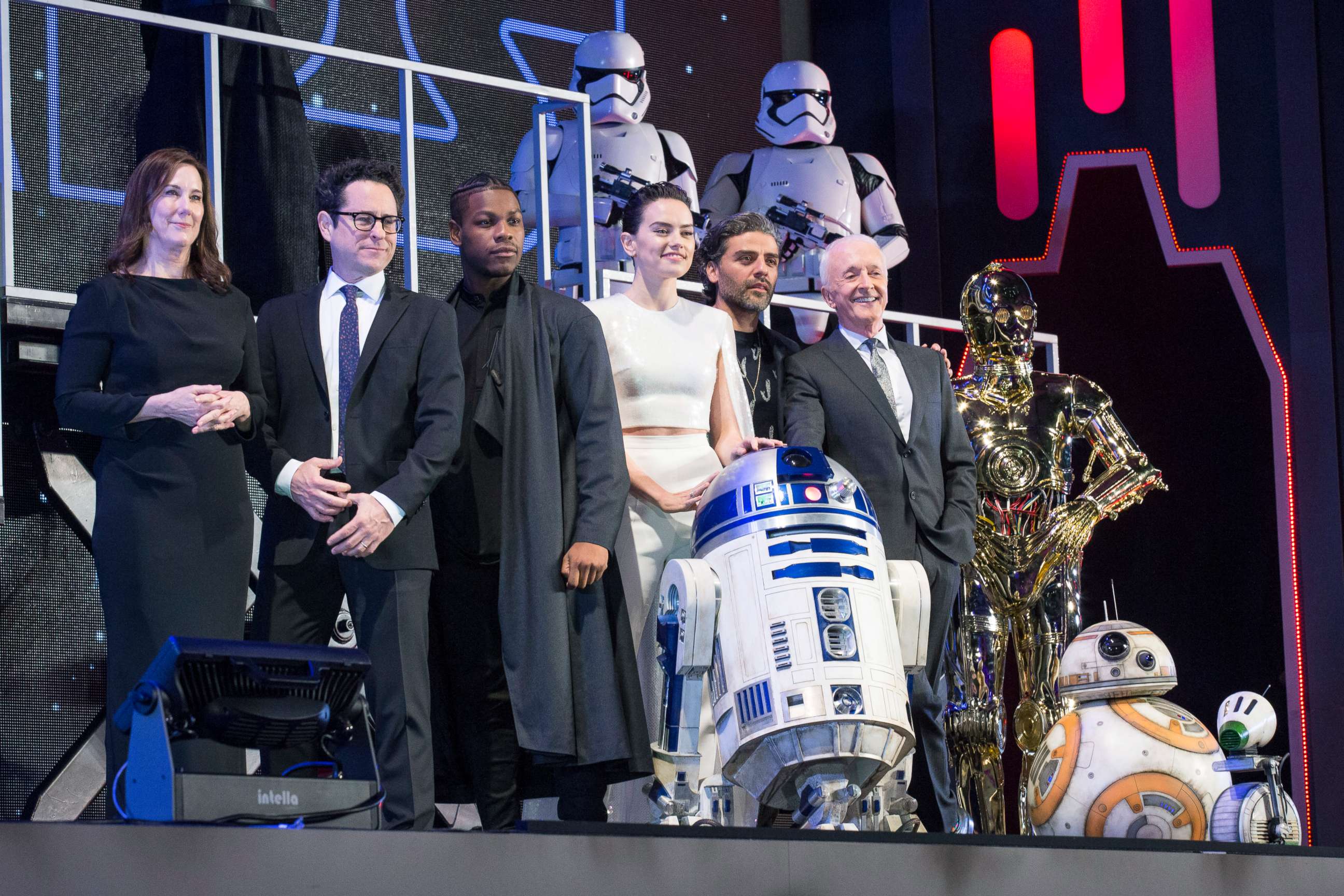How 'Star Wars' premieres have changed since 1977
There was no glitzy Hollywood premiere for the original "Star Wars."
The heart of Hollywood is shut down as crews race to get ready for Monday night's world premiere of "Star Wars: The Rise of Skywalker," a massive golden ticket event that will be livestreamed around the world.
A giant white tent sits in the middle of Hollywood Boulevard, guarded by dozens of security guards as workers set up barricades and roll out a blue carpet. Giant props assembled by the crew are hidden by tarps until tonight’s big reveal. Outside the world-famous TCL Chinese Theatre, dozens of fans have been lined up for days.
A long time ago along the same stretch of Hollywood Boulevard, however, it was a much different story.
There was no glitzy Hollywood premiere for the original "Star Wars" in 1977. No star-studded red carpet. Back then, the success of "Star Wars" had not been foreseen.
The movie opened in only 32 theaters on May 25, 1977.
At the time, George Lucas was working at night -- racing to finish a special audio mix of the film for wide release -- that he didn’t even know his movie had already opened in some places, including the famous Chinese theater in Hollywood, as recounted in "The Making of Star Wars" book by J.W. Rinzler.

During a break, Lucas met with his wife Marcia (who later won an Academy Award for her editing on "Star Wars") at a Hamburger Hamlet in Hollywood.
"We were way in the back," Lucas is quoted in the book, "but out of the front window I could see this huge crowd in front of Grauman’s Chinese -- limos -- and I thought someone must be premiering a movie. It never occurred to me that my movie was out, because I was still working on it. So we got up when we were done, and I said, 'Let’s go see what’s going on out there.' We walked out the door and I looked up at the marquee and said, 'Oh my God, it’s 'Star Wars!' I forgot the film was going to be released today! Holy moly!' But it was like six o’clock, so I had to go back to the studio to finish the mix."
The rest is history. The film went on to change cinema forever as people returned again and again to see it. Including Playboy magazine founder Hugh Hefner.
Those were Hefner’s limos pulling up to the Chinese theater, Rinzler wrote. Hef and his entourage stayed to watch the movie twice in a row.




